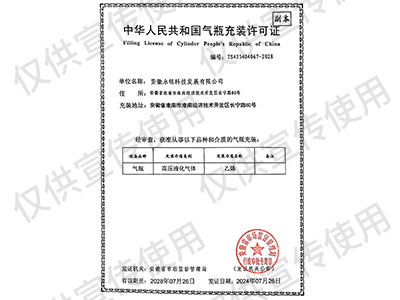Electronic-grade gas
![]()
The following are the core technical indicators and requirements of electronic grade propylene, which are comprehensively compiled based on semiconductor industry standards and production processes:
1. Basic purity requirements
5N standard (≥99.999%)
Purity must be ≥99.995% (volume fraction), total impurities ≤50 ppm, and it is mainly used in the synthesis of optical fibers, liquid crystal displays (LCDs) and high-performance polymers.
Ultra-high purity (>99.9995%)
Suitable for semiconductor processes below 28nm (such as photoresist peeling, chip cleaning), the total amount of impurities must be ≤10 ppm.
2. Key impurity limits
|
Impurity type |
Limit requirements |
Detection method |
|
Hydrocarbon impurities (methane/ethane) |
≤1–5 |
Gas chromatography |
|
Propidelene |
≤0.1 |
GC-MS combined |
|
Methylacetylene |
≤0.1 |
Gas chromatography-mass spectrometry |
|
Carbon monoxide (CO) |
≤0.5 |
Infrared absorption method |
|
Moisture (H₂O) |
≤1 |
Karl Fischer |
|
Metal ions (total content) |
≤1 |
ICP-MS |
|
Particulate matter (≥0.1μm) |
≤0.1 units/mL |
Laser particle counter |
Note: The ultra-high purity grade for semiconductors requires additional control of butene isomers ≤0.05 ppm to prevent residual defects from photoresist.
3. Relevance of application scenarios and indicators
Semiconductor manufacturing
Lithography process: used for photoresist peeling solvent. Water content >1 ppm will cause oxidation on the wafer surface, and metal ions >1 ppb may cause circuit short circuit.
CVD deposition: When used as a precursor, excessive hydrocarbon impurities will reduce film uniformity.
Display panel packaging
For LCD/OLED packaging glue, propidene residue will accelerate material aging and must be strictly ≤0.1 ppm.
Fiber Optic Coating
High-purity propylene synthetic fiber protective layer, excessive particle size will cause signal transmission loss.
4. Packaging and storage and transportation specifications
Packaging: 316L stainless steel cylinder is filled, electrolytic polished inside wall, filling pressure ≤1.5 MPa.
Storage: Store below 25℃ from light, and must be continuously filled with nitrogen (oxygen content ≤0.1 ppm).
Safety: Explosion limit is 2.0%~11.1%, and the leakage concentration alarm threshold is set to 1%.
5. Testing standards basis
Purity and hydrocarbon impurities: Perform GB/T 3392-2023 "Determination of hydrocarbon impurities in industrial propylene".
Metal ion detection: Refer to SEMI C10 standard (ICP-MS method).
About 92.8% of the world's electronic grade propylene purity is concentrated in the 99.995% level (5N), and its cost-effectiveness is suitable for large-scale semiconductor production; ultra-high purity (>99.9995%) is limited by process difficulty and has a market share of less than 8%.
- Previous:Acetylene
- Next:Hydrogen bromide





